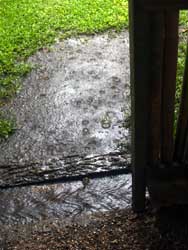
Study Water Conservation and Management Online
Learn about water resources, use and application of water conservation measures in different contexts. Improve your capacity to design, implement and asses water management plans and procedures.
Water is the most important substance to sustain life. All living organisms need water. Many need air, and many others can survive without air, replacing it with other gases, but none of them can survive without water.
Who should do this course?
- Anyone who works or desires to work in the provision and management of water resources.
- Students of Agriculture, Horticulture or any other industry where water is important.
- People working or planning a career in habitat or environmental management